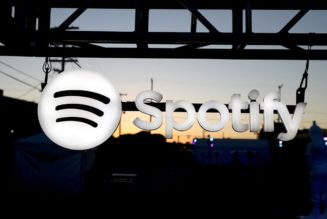Billboard spoke with Dr. Amesh A. Adalja, senior scholar at Johns Hopkins University Center for Health Security and an authority on infectious diseases and pandemic preparedness, to raise these questions. Adalja, 45, is a go-to pandemic expert, sharing his views on CBS This Morning, NPR and the BBC, among many others during the past year and a half.
It turns out Adalja knows his way around concerts, too: A longtime skateboarder, Adalja grew up listening to Red Hot Chili Peppers, Nirvana, Metallica and Rancid and saw the original Lollapalooza twice.
“We’ll have COVID cases 20 years from now,” he says. “Then we have to come up with a way to be able to go about our lives, making risk calculations just like we do with other respiratory viruses or risks we face every time we get out of bed.”
Most skateboarders I know are into live music — true for you? Were you missing shows over the last year and a half?
When I was younger. Then medical school, residency, made it very difficult. I used to go to Metallica concerts wherever they were. I went to see Nirvana twice right after high school. It is one part of pre-pandemic life that everybody wants to see resume.
The Lollapalooza numbers released last week indicated the festival was not a super-spreader event, even though Chicago infectious-disease experts and local columnists said continuing the show was a bad idea. Does this suggest large outdoor events can be safe?
I think it does illustrate proof of concept that this can be done safely. The more vaccinated people are, the safer they are. If you’re the only unvaccinated person at a mostly vaccinated concert, you’re probably in a really good position, because it’s less likely you’ll be infected. Testing, specifically for unvaccinated people, can also be a way to let unvaccinated people in — if they’re proven to have a negative test.
A story last week based on studies from the Mayo Clinic and others as well as comments from a Harvard University epidemiologist suggested breakthrough infections among vaccinated people are more prevalent than we had thought. (According to the story, researchers had estimated vaccines’ “efficacy against symptomatic transmission” to be 90%, but a more recent Mayo Clinic study indicated the delta variant might drop that number to as low as 42%.) How does this affect the way you think about COVID-19 and safety?
We know breakthrough infections are rare. The fact that breakthrough infections are occurring is not surprising. Vaccines are not bug zappers. Vaccines are not force fields. The goal was not to prevent breakthrough infections, the goal was to prevent hospitalizations and deaths. To that end, they’re performing off the charts, to use a Billboard metaphor.
Concerts and festivals are slowly coming back, and many more are scheduled for this fall and early 2022. How appropriate, from a safety point of view, is this rate of reopening?
I think it is correct. I don’t have any issues with it. They have to be mindful of the risks they may be taking. Some concerts and some bands are asking for audiences to be totally vaccinated — that’s a responsible way to do it. Eventually it comes to a point where there’s going to be some aspect of individual responsibility. We can’t keep holding the vaccinated back for the unvaccinated. When hospitals are stressed, like they are in parts of Florida, Texas, Louisiana, Missouri, you have to be more cautious. But if you’re in a place where hospitals are not getting crushed, I don’t have any issue with these types of concerts. For fully vaccinated people, I don’t think there’s any major risk or concern — if they were to get a breakthrough case, it’s going to be mild. We can’t be in the business of trying to stop people from getting mild breakthrough infections. If that’s the case, then there is no off-ramp for this pandemic because this virus is never going away. Our goal is to prevent serious illness.
When we see reports that say an event happened and there were X infections — that’s inevitable, right?
It’s predictable. We’re not going to drive cases to zero. What’s more important is focusing on hospitalization and deaths — not cases.
Not too long from now, concerts will move from outdoors to indoors. How dangerous is that for audiences?
There are increased risks of transmission when you move things from the outdoors to the indoors because people can’t naturally socially distance, the ventilation will not be the same. There’s no sunlight, humidity — all those things are not necessarily going to be replicated in an indoor setting. People are going to have to learn to make risk calculations. For some people that risk might be they don’t go to indoor concerts. For other people, they do go to indoor concerts depending on their individual risk tolerance. The best way to make those venues safe is to have as many people vaccinated as possible.
Last month, Foo Fighters postponed a show because someone in their organization tested positive. How worrisome is this?
Breakthrough infections are going to happen. People have to realize there’s no way to completely eliminate a COVID risk. Vaccinated people really have nothing to fear from COVID . If they happen to get one of the rare breakthrough infections, it’s likely to be mild, probably not much different than the common cold. I don’t know the exact stuff about the Foo Fighters issue, but many bands are doing routine testing of people without symptoms, so they’re probably picking up clinically insignificant infections from a medical standpoint.
How much should people with unvaccinated kids under 12 be worried about going to a concert and bringing COVID home with them?
If you’re unvaccinated, the delta variant is likely to find you. By and large, children are spared from the severe consequences of disease. They’re less likely to get long COVID. That doesn’t mean it’s doesn’t happen. It means it’s very rare for it to happen. For that age group of 12 and under, other diseases like influenza or respiratory syncytial virus pose at least as great a threat as COVID-19, probably even greater as you get to younger age groups. The best way to keep children under 12 safe is to have as many adults as possible vaccinated. Many people who bring that up fail to realize they’re going to summer camp, they’re playing video games in someone’s basement, they’re doing a lot of other risk factors. The risk of contracting infection from a vaccinated person is much lower than the risk they have from everyday life, hanging out with their friends who are also unvaccinated.
Which Nirvana shows did you see?
They were both in 1994. I live in Pittsburgh. The first was in Dayton, OH, and my friends and I piled in a car and drove there. I think it was at an old roller-skating rink. Their first drummer, Chad Channing, was supposedly in the crowd and they wanted him to drum so they put up the house lights trying to find him and Dave Grohl stepped away from the drum kit, saying, “I want Chad Channing to play this.” He never showed up but it was pretty cool to see that. The second one was at University of Buffalo and it was very packed. I was close to the front and I remember getting smushed against the rail. Maybe I’m imagining this, but I think I made eye contact with Kurt Cobain, and he said, “Everybody needs to back up and we need to stop for a second before someone gets hurt.”
We need to reopen concerts right away so more people can experience the feeling of being smushed in a mosh pit.
I remember once at a Helmet concert, they had to throw rags out to the crowd to wipe the blood. I used to go to concerts all the time. I did go to a concert post-pandemic — the Indigo Girls were playing for free in the Pittsburgh area, but there was no mosh pit.












